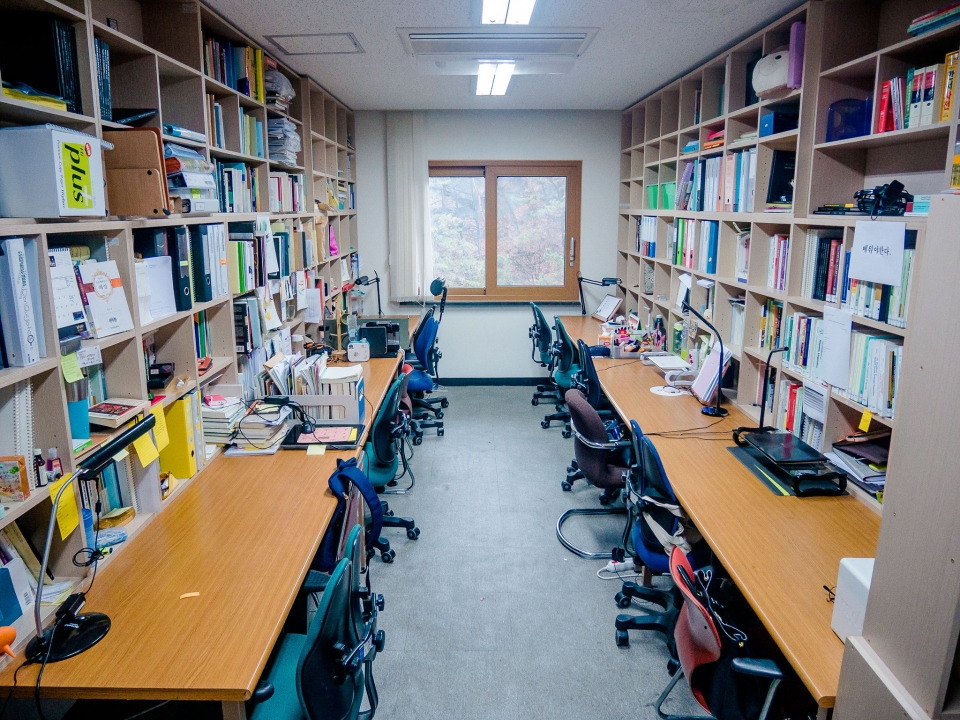
Graduate students say that when choosing labs, one should consider not only the research level and the professor’s dissertations, but also the professor’s personality, since there are many who misuse their authority. Three years ago, a professor was sentenced 8 years of imprisonment for physically and mentally harassing a graduate student - forcing him to eat ‘human waste’ and chocking him with a plastic bag - and recently, a professor from Hanyang University was arrested for embezzling graduate students’ payments worth 600 million won. There are still many victims of such abusive behaviors under the veil; in fact, according to a survey conducted in Sept. 2017 by congressman Lee Chul-hee’s office and KGEU, 74% of the researchers - graduate students and postdoctoral students - responded that they had experienced ‘abuse of power’.
About 70% of POSTECH undergraduates enter graduate schools to chase and achieve their dreams. As potential graduate students, Postechians are also potential victims of ‘abuse of power’ within graduate schools and therefore should be conscious of such reality. In order to increase awareness, The Postech Times interviewed a few POSTECH graduate students anonymously.
The graduate students provided The Postech Times with numerous cases regarding ‘abuse of power’. They replied that the students’ rights to rest are ignored as they are expected to attend labs even during weekends and public holidays. They also reported that many professors ask graduate students to do personal tasks, such as purchasing travel tickets for family holidays and doing the children’s homework. However, this was just the tip of the iceberg.
The interviewees explained that some professors make personal attacks on students; they replied that at least 50% of graduate students have experienced verbal abuses. In one lab, the majority of a lab’s students quit due to the professor’s unbearable personal abuses. Although there are little cases of direct violence, such as beating, there are still many cases of indirect violence such as throwing objects. One interview replied that being hit with ashtrays and laser pointers is common amongst graduate students.
There are also cases of embezzlement, exploitation of both money and research achievements: a professor demanded students to pay back their labor expenses advisors and required donations to their departments. A CSE professor even demanded students 20% of their payments. There was also a professor who falsely included his son’s name in a dissertation.
Despite all such violation of graduate student’s rights, no reliable system exists to report such corruptions. Due to the specificity and narrowness of the field that a laboratory focuses on, professors are given absolute authority over all members of their laboratory; since the professors have immense influence within the academia, students fear that, if they report the professors for such ‘abuse of power’, the professors will denounce the students’ reputations, making it difficult to earn degrees and find jobs. Acknowledging such consequences, graduate students find it tough to properly stand up to unfair treatments. The graduates also further explained that it is nearly impossible to find any proper measures to prevent them from such consequences, as the number of members within a laboratory is limited and small, it is relatively easy to sort out the reporter. After the reporter is uncovered, there is no protection policy for the reporter, enabling professors to apply any sort of punishment for such deeds. Furthermore, as each laboratory possesses a unique culture and custom, those who aren’t familiar with such an environment find it hard to understand the severity of this issue and offer help. Such drawbacks of currently existing systems discourage proper accusations of professors.
To solve such problems within contemporary graduate’s society, a system or organization that can understand and emphasize with each graduate’s situation and protect them from all possible consequences is necessary. Moreover, more severe legal protections of graduate student rights and regulations regarding laboratory cultures and policies are required to cultivate a fair and just graduate school environment. Most importantly, professors must acknowledge that that they were given authority, not to persecute the students for their own goods, but to guide the potential researchers towards their dreams.


